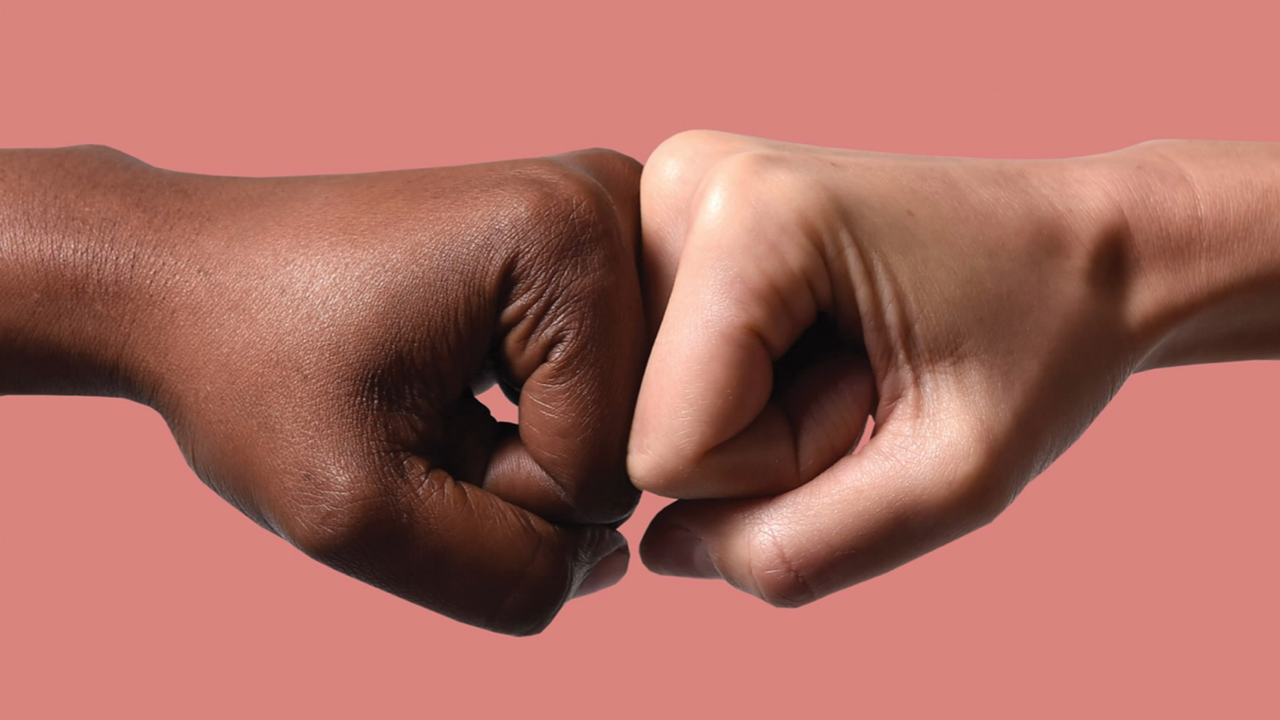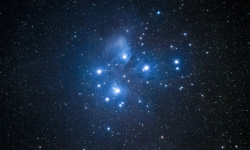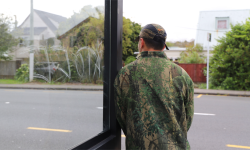
Within our churches in recent times, there have been discussions around what it looks like for Mu0101ori to relate to God as Mu0101ori, within a Pu0101kehu0101-dominant culture. There is an ongoing need for reconciliation between Mu0101ori and Pu0101kehu0101, particularly around the issues of restitution and power sharing. But amidst this we must consider the associated need for Pu0101kehu0101 to understand who they are and how they belong in Aotearoa New Zealand. Dr Alistair Reese considers why this is.
Why does understanding your identity matter?
People need to know who they are and how they belong for a variety of reasons. We live and operate out of the understanding of our identity, and significantly for social cohesion, identity influences the way we relate to each other. When identity is confused, not only does it bring a personal insecurity but it also colours our view of others. Identity insecurity often means that we feel threatened by the prosperity and development of another person or group.
As I have travelled presenting some of the social justice issues of Mu0101ori, including loss of land and culture, my expectation had been that Pu0101kehu0101 would respond with a desire to see justice and the restoration of Mu0101ori loss. And that does happen to some extent, but what I also hear is a sense of Pu0101kehu0101 insecurity about their identity and place of belonging. So, counterintuitively, although Pu0101kehu0101 u2018enjoyu2019 the political, social, and economic advantages of a dominant people, in the deep area of identity, we are insecure and somewhat challenged. Some scholars have termed this the u2018Pu0101kehu0101 existential dilemma.u2019 I believe this has caused limitations in the Pu0101kehu0101 support of Mu0101ori identity and pursuit of reconciliation.
Why are Pu0101kehu0101 confused about their identity?
To begin to understand this, we need to recap some of the history since the signing of the Treaty of Waitangi.
For new settlers to New Zealand, Europe tended to be referred to as the homeland for many generations. Europe informed their view of history and the Pu0101kehu0101 identity strongly depended on that connection. This Euro-centric perspective limited the formation of an identity narrative which might have reflected the new environment. In addition, the process of colonisation often saw Mu0101ori encouraged, by the Crown and some Mu0101ori, to assume a u2018white exterior.u2019 Mu0101ori put their own cultural identity in the background and adopted a European persona in terms of language and culture, in order to make u2018progressu2019 in the new world.
These perspectives began to change around the 1960s. With the formation of the European Economic Community in the 1960s, New Zealand no longer had preferential treatment in trade and the security of the connection to Europe began to be eroded. The cultural shifts and civil rights movements of the 1960s set a foundation for what is termed in some quarters as the u2018Mu0101ori renaissanceu2019 of the 1970s and 1980s. This included the increasing awareness that it was good and right for Mu0101ori to be Mu0101ori. The Treaty emerged again from a period of neglect within the national consciousness, and with it the associated recognition that Mu0101ori are the tangata whenua (people of the land).
Jettisoned by changes in the u2018homelandu2019 of Britain and challenged by Mu0101ori discontent to be assimilated into a European view of reality, Pu0101kehu0101 identity was challenged in a land where they had presumed to have dominance. Pu0101kehu0101 began to ask the question: u201cWho are we and how do we belong here?u201d
How can the Treaty help Pu0101kehu0101 know who they are?
It is generally accepted that the Treaty of Waitangi is an opportunity for Mu0101ori to address their identity, some of their needs, and some of the injustices they have incurred as a result of colonisation: the Treaty clearly identifies Mu0101ori as tangata whenua with rights and responsibilities that go with that.
But the Treaty is also an identity opportunity for Pu0101kehu0101. Judge Edward Durie summed it up well in 1989 at Waitangi by saying: u201cWe [Mu0101ori] must not forget that the Treaty is not just a Bill of Rights for Mu0101ori. It is a Bill of Rights for Pu0101kehu0101 too. It is the Treaty that gives Pu0101kehu0101 the right to be here. Without the Treaty there would be no lawful authority for the Pu0101kehu0101 presence in this part of the South Pacific... We must remember that if we are the tangata whenua, the original people, then the Pu0101kehu0101 are the tangata tiriti, those who belong to the land by right of that Treaty.u201d
On this basis, the Treaty affords Pu0101kehu0101 an identity and as Durie implies the Treaty also provides a pathway to belong to the land at a deeper level.
How can the Treaty help Pu0101kehu0101 belong in this land?
Metaphors are helpful in illuminating concepts and in my view the marriage metaphor is worthy of exploration when talking about the Treaty relationship. Of course it is only an analogy but it can help us to understand some of the potentialities.
In a marriage, each person has certain rights. But rights are not the heart of a marriage. The heart of a marriage is intimate relationship. One pathway to this way of relating is the preferencing of the other, the honouring of the other, with a desire to see the other prosper.
In relating this metaphor to the Treaty, we acknowledge that the Treaty is partly about rights, but that it is actually about more than rights. From the very beginning, Mu0101ori and the Crown talked about the Treaty in covenantal terms. This elevates the Treaty to more than rights talk and acknowledges that the Treaty is primarily about relationship. So in seeking this relationship, as Pu0101kehu0101, I ask, u201cWhat is best for Mu0101ori?u201d For example, I want to see Mu0101ori flourish in their language and in the way they see the world. I would like Mu0101ori to have a platform with liberty to be fully who they are.
I could approach this legalistically. But as New Zealand Christians, we can understand something of the divine protocols of God. This includes the concept of honour. So as Pu0101kehu0101, my response is to honour tangata whenua as I see elders honoured in Scripture. From this position of vulnerability, I honour Mu0101ori, not because there is something better about Mu0101ori but because there is something appropriate for me that when Mu0101ori and Pu0101kehu0101 are together, I take my lead from Mu0101ori.
Practically, this concept of honour will include a willingness to become familiar with Te Reo Mu0101ori (Mu0101ori language) as well as tikanga (the Mu0101ori way of doing things), preferably within settings that might be described as Te Ao Mu0101ori (the Mu0101ori world).
This is in contrast to the way we are used to operating and challenges our dominant cultural position.
But it isnu2019t an imposition of one culture on another; it is a beautiful way of doing life together, from which we are able to learn and develop a shared identity and move towards a greater civility.
Importantly, this is not out of a desire to flatter or appease, but from a two-way exchange that is grounded in the confidence and security of equality stemming from who I am as tangata tiriti.
Closing thoughts
Identity configurations are complex, and of course more nuanced than the above generalised discussion has allowed.
However given that, I conclude that discussions of what it means to be a Pu0101kehu0101 New Zealander in the 21st century are important. The adoption of careless identifiers will only repeat some of the colonising tendencies of the past and threaten the fragile and precious relationships which were formalised and consecrated in 1840.
Pu0101kehu0101 are gifted an identity in the Treaty, but with this comes a concomitant responsibility. As I mentioned, rights are part of the Treaty. But before we work on translations and interpretations, we need to be u2018sitting at the tableu2019 in relationship, getting to know each other, listening, and hearing. There will be differences, including the challenge of negotiating our different worldviews. However, the beauty of the covenant is that we are committed to working through our differences with an understanding that there can be unity without the loss of identity. From this vantage we are then able to unpack the details of the Treaty. The appropriate time for this is when we know something of the heart of the other. Otherwise we will be talking loaded political terms that are attempts to out-argue each other. Itu2019s not that we shouldnu2019t talk about these complex aspects, but we must understand our identity in the Treaty first.
Story: Dr Alistair Reese
Alistair is a theologian and historian with particular focus on social reconciliation. He works with Te Kohinga Reconciliation Network in Tauranga. Through the lens of the Christian gospel and recognition of New Zealand history, this network seeks to strengthen the relationship between Mu0101ori and Pu0101kehu0101 in this region.
Take outs:
- How do you consider your identity in Aotearoa New Zealand?
- How do you view the Treaty? Do you see it as a document about rights, relationship, or both?
- How well do you engage in the bicultural journey?


